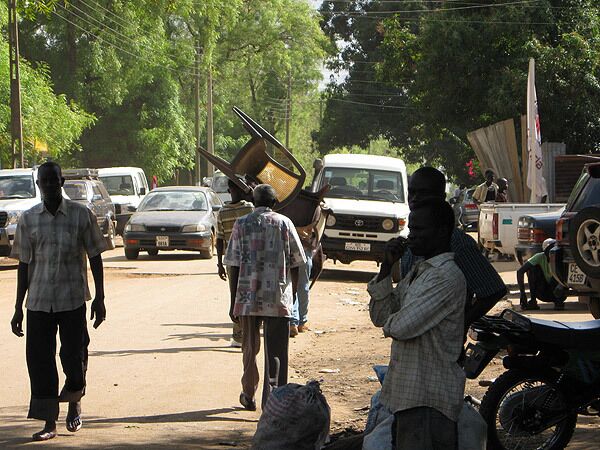MOSCOW, September 8 (RIA Novosti) - For more than eight months, South Sudan has been witnessing waves of ethnically-driven cruelty, characterized by the mass killing of the civilian population, the destruction of private property, violent assaults and other forms of criminal activity.
“The solution to South Sudan’s current crisis [lies] within the reach of its people, but this requir[es] an active supportive role from the Inter-Governmental Authority on Development (IGAD), the African Union (AU) and the broader international community,” said former Nigerian leader Olusegun Obasanjo and South Africa's former president Thabo Mbeki in a statement, published by Sudan Tribune on Sunday.
After gaining independence from Sudan in 2011, a goal the South Sudanese had sought since 1956, the newly established state was expected to meet the social, economic, and political needs of its population and avoid the faults of Sudan’s policies in the past. However, this euphoria was quickly replaced by disappointment and alienation among the masses, as the new government turned out to be incapable of overcoming existing political, economic and social challenges or improving its inefficient institutions. Since its independence, the new state has suffered through an internal inter-ethnic conflict that has pitted its government against opposition forces, escalating into a devastating civil war.
The South Sudanese Civil War started on December 15, 2013 and has resulted in the killing of over 10,000 people, as well as the displacement of approximately one million more.
According to a Human Rights Watch report, “the first months of South Sudan’s new war were distinguished less by fierce battles between fighting forces than by horrific attacks on civilians often because of their ethnicity and presumed allegiances. In many cases fighting forces have retreated at the threat of attack by the other side, leaving civilians behind to bear the brunt.”
A lot of people were arrested or killed solely because of their perceived ethnicity.
“They took us because we are Nuers,” said a young man, who was arrested together with two other boys by government soldiers who belonged to the rival Dinka ethnic group. “They walked us to the riverside near the hospital. They told us to sit down and then they shot us. I tried to run into the river after I was shot and I fell into the water.”
Many political analysts think the situation in South Sudan has worsened due to the availability of different types of weapons. Since the beginning of the civil war, the country has been inundated with arms shipments, costing a total of $38 million, as Amnesty International informs. In order to stop the flow of weapons into the country, a number of South Sudanese and international human rights organizations have presented a petition to the Intergovernmental Authority on Development (IGAD), calling for an urgent arms embargo. The petition provides for “every state to take measures to prevent the direct or indirect supply, sale or transfer of arms to South Sudan”.



